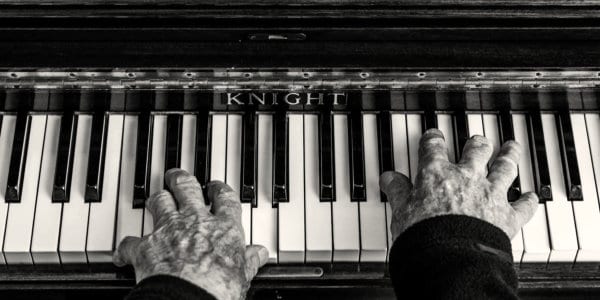A true story
Mr. A. Steg—I never learned his Christian name—first came to our house in Westmount to give my brother Eamonn his weekly piano lesson. He was a small, self-effacing man, a gifted teacher, scrupulously polite, effusively courteous, and somewhat otherworldly, I thought. He invariably gave our mother a little bow upon his arrival, and another on departing, and occasionally ‘forgot’ to present his monthly bill, perhaps because he thought his fees excessive, as he lived modestly by himself in a humble working-class district in the lower town, and was, Mother told us, a refugee from a Communist regime somewhere in eastern Europe, a ‘displaced person,’ she thought, uprooted from his native soil by the pre-war dismemberment of Europe by Nazi Germany and post-war occupation by Soviet Russia. My three sisters, Eileen and the twins Elsa and Eva, and my brother Eamonn and I thus treated him with respect as a survivor of the totalitarian evil that convulsed a continent before we were born, so long ago and so far away.
As the youngest in our family, I was at that time too childishly self-absorbed to pay close attention to his comings and goings, but as the years went by and all of my sisters in turn also became his students, Mr. Steg’s diffidence and gentle, sad smile began to imprint itself on me, although I never became his pupil. I lacked the self-discipline needed for the study of music that my siblings possessed. Eamonn, ten years older than me, turned out to be a gifted pianist and went on to have a distinguished career in Los Angeles, but perhaps blinded by fame, he did not keep in touch with Mr. Steg, to his sorrow, and he wrote only infrequently to us.
I remember, quite vividly, falling on our driveway as I ran to tell Eileen of Mr. Steg’s arrival before our maid Delphine could. I howled more in exasperation than pain, but Mr. Steg calmly dampened a clean handkerchief at the tap, cleared the wound of grit, and producing a Band-Aid from his billfold like a magician, applied it to my knee with a flourish. He told Mother that he still hoped one day to become a doctor. When he left, he sighed and gave his sad smile as he ruffled my hair. “Children and family are such blessings, Mrs. Parmenter. I have neither, nor am I likely to.” It was as if he had been prompted to a second disclosure of vulnerability too pressing to deny. “ I will see you next Tuesday. Please convey my respects to Mr. Parmenter.” Mother, a formidable household presence, and a gracious hostess of social functions in support of our community and Father’s prospering business, was not insensitive, and touched by Mr. Steg’s admissions, she invited him to become a frequent guest at birthday celebrations, and at Easter and Christmas family gatherings. “After all,” she said, “you are by now a member of our family.” He always came with alacrity, bringing little gifts for all of the children. He was incapable of receiving presents without reciprocating, in spite of protestations from my parents. At Easter and Christmas, my mother re-arranged the timing of our Paschal and Christmas Eve feasts to accommodate his own observances at the Lutheran church he attended, the only church where he could worship in German, and hear the music of Bach and Beethoven that he so loved, played by a Bavarian organist. We often had other guests at dinner in those days and these were captivated by his depth of knowledge of art and music, politics and history. It was agreeably surprising to them that this humble piano teacher in his ill-matched clothes could discourse so eloquently despite his oddly-accented English. Born into poverty to an unwed mother, abandoned by a feckless father, and largely without formal education, he was an autodidact: he had taught himself by wide reading and wider travel, as we were all eventually to discover.





